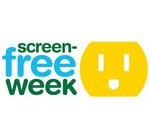 We have long been proponents of putting away the cell phone at mealtimes. So naturally, we’re delighted with a new game making the rounds that challenges diners to put their cell phones away during restaurant meals . . . or else risk picking up the tab for everyone’s dinner.
We have long been proponents of putting away the cell phone at mealtimes. So naturally, we’re delighted with a new game making the rounds that challenges diners to put their cell phones away during restaurant meals . . . or else risk picking up the tab for everyone’s dinner.
According to “The Atlantic Monthly,” the game was developed by a group of friends in San Francisco who were looking for a way to enjoy conversations at dinner without the distraction of others talking and texting on their cell phones.
The rules are as follows:
- The game starts after everyone orders
- All parties must place their phone on the table face down
- The first person to flip over their phone loses the game
- The loser picks up the dinner tab
- If no one loses, all participants pay for their share of the meal
There are, of course, opportunities for variations on this theme. For meals at home, the loser might be tasked with cleanup duty or have to forfeit the use of his or her cell phone for a set period of time.
Has cell phone usage cut into your mealtimes? Why not make a game of unplugging and reconnecting – it’s a fun way to break a not-so-fun habit!



